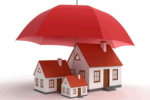What Recent NAR Settlement Means for Home Buyers

The Department of Justice, in its regulatory capacity, has recently intervened to reshape commission structures, a move that will trigger a multitude of changes, especially for home buyers.
The National Association of Realtors ( NAR) settlement has not yet been accepted. It is proposed to go into effect at the end of June to mid-July.
The results of the NAR Settlement means that:
1. NAR owned multiple listing services ( MLS) are prohibited from sharing offers of compensation to Buyers.
2. MLS members are required to enter into written agreements with the buyers disclosing how they will be paid and by whom before showing a property.
What are Multiple Listing Services (MLS)? They are database platforms that agents and brokers pay to subscribe to. The agents and brokers use it to share information about properties for sale. Subscribers agree to rules about cooperating with and compensating all brokers who subscribe to it. If you are seeing listings on other sites (like Zillow), chances are, those sites are getting a feed from their local MLS.
Since the beginning of buyer agency, the buyer broker’s commission has been built into the sale price of the property. The buyer paid for the house and the seller paid outstanding bills, then collected their profit. Responsible seller’s brokers used a form called a “net sheet” to show sellers what their final profit was. Broker fees were deducted from the sale price along with taxes, water bills, or other costs of the sale.
The MLS system built commissions into the price. The seller, through their broker, published their offered commission to buyer’s broker on the MLS.
If the settlement is accepted and all offers of compensation are removed from the MLS system, we need ways that buyers can continue to pay our fees without undo burden.
1. Include the Buyer Broker Fee in the Offer and request that it be included in the Sales price. This creates a way that the buyer broker commission is paid for in a mortgage, as part of the house purchase. Functionally, this is exactly the same as it has been. The buyer pays for the house, and the buyer’s broker fee is subtracted from the seller’s profit at closing.
2. Lenders are seeking ways to create financing options for buyers, so that they can finance the buyer broker commission, if it is not included in the sale price.
3. Buyers to pay the Buyer Broker fee outside of Closing or as a disbursement at Closing, though not reflected in the sales price. This is de minimis for cash Buyer but requires that a Buyer getting a loan have more cash to close.
Home Buyers will no longer have representation costs built into the real estate transaction when a property is listed through the MLS system and represents a property for sale by a licensed real estate agent, but Sellers will.
Buyers or their agents will have to approach Seller and ask permission to include the cost of representation within the transaction. Sellers have all the power to withhold their permission for the Buyer to do so. Seller’s representation costs, however, will continue to be included in the transaction, using the Buyer’s funds to pay for them.
Every Buyer will be obligated to sign an Exclusive Buyer Agreement in advance of being shown homes that specifies payment terms when seeing a home that is listed by a real estate agent, EVEN IF THE REAL ESTATE AGENT SHOWING THE HOME IS THE LISTING AGENT. THIS IS DUAL AGENCY!
Payment can be made directly by the buyer outside of the transaction, included in an offer to the seller requesting a credit to cover the expense, or through a commission offered by the listing agent. However, commissions won’t be advertised as part of the transaction on the Multiple Listing. Fee arrangements with the client may include an hourly fee, a lump sum fee, or a percentage-based commission.
This is a particular disservice to homebuyers requiring a loan. Buyers will have to pay their own agent out of pocket, on top of a down payment and other closing costs. Finding thousands of dollars to pay an agent could be a challenge, especially for first-time buyers, who typically have limited funds and also the greatest need for an agent’s guidance. VA Loans currently prohit paying a Buyers Agent directly by the Buyer.
The trickle effect resulting from this barrier to entry for first time homebuyers or move up home buyers will likely affect the economy negatively in the near term. Home buying and construction drives jobs, manufacturing, retail and more.
Removing the buyer’s representation cost from the transaction but leaving the seller’s representation cost in is extremely one sided and unfair.
Florida has more real estate agents than any state in the US and over 99.9% of agents in Florida are transactional agents who don’t represent the buyer or seller in a fiduciary capacity. According to Florida statutes, unless an agent establishes a single agent or no brokerage relationship with a customer in writing, they are by default considered transaction brokers.
The Florida Legislature some time back rewrote a law to say that if you’re a fiduciary agent, you have to disclose that, but if you’re transactional broker, you don’t have to. Why is transactional brokerage so attractive to the agents? It is because you don’t have the legal liability, you don’t have the responsibility that a fiduciary agent has.”
Optima Properties is a member of the National Association of Exclusive Buyer Agents
(NAEBA.org) and never represent Sellers. Optima Properties does not list or sell houses and never practice Dual agency. Optima Properties will never ask homebuyers (clients) to sign a “consent form” asking them to switch to another “Designated Buyers Agent or Dual Agent” within the team or same real estate brokerage in the middle of a real estate transaction because the buyer is interested in making an offer on one of their company’s real estate listings.
Click Here for a list of
“100 Services Provided to Home Buyers”
by Optima Properties












 Kim N. Bregman
Kim N. Bregman